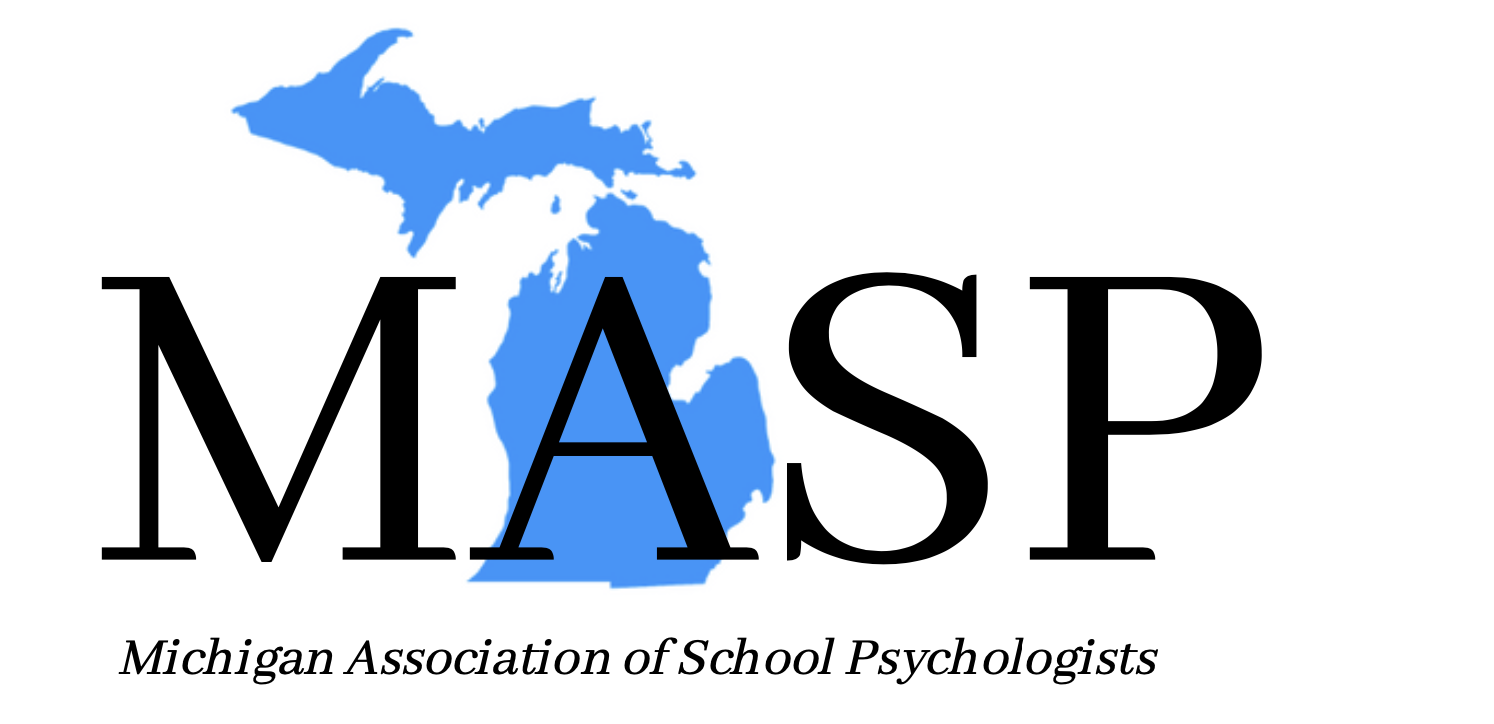The MASP Diversity Scholarship Plan
School Psychologists in Michigan serve a racially and ethnically diverse group of students. Regrettably, the population of school psychologists in our state is disproportionately under-represented. Despite various reasons ( institutional and historical) for this mismatch, our organization is committed to encouraging a more diverse and representative group of school psychologists in the next generation. To do so, we are starting a scholarship fund that will provide a small but meaningful financial award to a school psychology graduate student with an under-represented or minoritized identity who is studying in Michigan.
Rationale:
Research suggests that representation in education is critical to the success of all students, especially those from minoritized background, and NASP is committed to creating more diverse Graduate student populations. In the state of Michigan, the demographics of school psychologists do not match the demographics of children in the state.
|
Racial/Ethnic Demographic |
Percentage of School Psychologist Certificate Holders (total 1,758) * |
Percentage of school age children in Michigan (total 2,153,379)** |
|
White |
89.4% |
65.89% |
|
Black/African American |
5.5% |
16.13% |
|
Hispanic/Latino |
2.3% |
8.82% |
|
Asian |
1.0% |
3.45% |
|
American Indian |
0.6% |
0.56% |
|
More than one race |
1.3% |
5.12% |
*Data from Michigan Educator Workforce Data Report (https://www.michigan.gov/mde/services/ed-serv/educator-workforce-research/educator-workforce-data-report). Please note that the number of school psychology certificate holders may not accurately reflect the total number of practitioners, these numbers should be viewed as a general estimate.
**Data from the Annie E. Casey Foundation (Kids Count) https://datacenter.aecf.org/data/tables/11547-population-ages-birth-to-17-by-race?loc=24&loct=2#detailed/2/any/false/2048/8136,6553,3648,12,8137,13,185,6551/22747,22748
While these numbers don’t reflect all types of marginalized and minoritized identities (such as LGBTQ+, Arab, Middle Eastern or North African origin, or disability identities) these demographics illustrate a clear need to work toward diversifying our field. Additionally, prospective graduate students contacted through the NASP Exposure project indicated the high cost of graduate school and student debt as barriers to entry into the field.
What is the scholarship?
MASP aims to raise approximately $2500 dollars for a small scholarship to assist a graduate student from an under-represented group, through fundraising events, sale of merchandise, and other donations. The goal is to raise funds through the Fall and Winter in 2023. During this time, the scholarship subcommittee, which all MASP members are welcome to serve on, will finalize an application, selection rubric and membership of the selection committee. Our goal is to be ready to accept applications from Graduate students in the Spring of 2024 (April), and announce a recipient in June, with funds to be disbursed in the Fall of 2024. However, this timeline is dependent on meeting fundraising goals. If this goal is not met, the timeline for applications, selection and announcement of the recipient may be pushed back to account for additional fundraising efforts.
Eligibility and Application Process:
Candidates for the scholarship must be current graduate students in master’s or education specialist programs in Michigan, and are pursuing a certification in Michigan and intend to become practitioners in the state, who identify as being from an under-represented background ( defined as racial/ethnicity/ability and other demographic groups), whose representative percentage in the field is below the percentage of the total population. This list includes the following individuals:
-
American Indian/Indigenous
-
Black or African American
-
Asian
-
American Indian, Native Hawaiian or Pacific Islander
-
More than One Race
-
Arab, Middle Eastern or North African origin
-
Latino/Hispanic origin
-
Disabled individuals
-
LGBTQ+ individuals
-
Other groups or backgrounds not listed here
The list of under-represented groups will be revised as further data is collected, and as demographics change.
When the application opens (tentatively in April of 2024), information will be published on MASP’s website, email list, social media, and through communication directly to state trainers; as well as student representatives. Eligible candidates will submit a brief application that includes a description of their plans to impact students as a school psychologist, and how the funds will impact their graduate school experience. Recipients may also be honored at MASP events or through MASP communication channels.
Fundraising Plan:
MASP is a 501(c)6, meaning a non-profit but not charitable organization. While we can collect and disburse the funds, we are limited in some other ways (such as donations not being tax-deductible). To begin, we will be conducting fundraising events to raise money in a dollar-for-dollar way (meaning almost all money raised will be disbursed in the next scholarship). Long term, MASP plans to pursue partnership with a community foundation (or similar organization) to establish an endowed scholarship, but this will require a significant start-up fund.
Current Plans for fundraising include:
-
Social Event during Fall Conference- Trivia Night
-
Merchandise sales during the holiday season
-
Giving Tuesday campaign
-
Past-President Champions letter writing campaign
-
Possible social event associated with Spring Conference?

